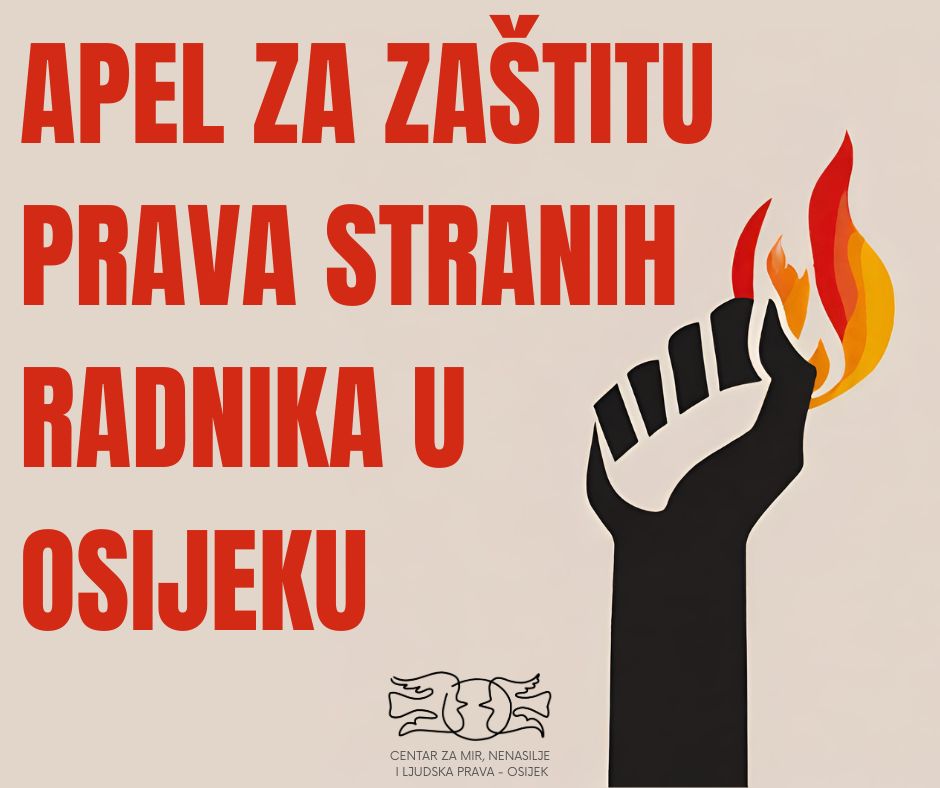Published 12.10.2023. | Tena Mur

Inspired by recent events at the Osijek-based company Drava International, we want to draw attention to the unfavorable situation of foreign workers employed in this company. The fire that consumed thousands of square meters of plastic is not just a local incident but an alarming reminder of the need to protect the safety of citizens and workers, as well as the importance of promoting ethical and fair business practices. Our thoughts are with the families, citizens of Osijek, and the workers facing the consequences of this incident.
According to information provided by the Center for Peace, Nonviolence, and Human Rights in Osijek, an organization authorized to provide free legal assistance, the company currently employs 117 foreign workers, including 116 Nepalese citizens and 1 Indian citizen. These are third-country nationals with approved residence and work permits in accordance with the Foreigners Act. According to positive legal provisions, the employer hiring foreign workers in this status is obliged to provide accommodation and meals for them. Before and during the outbreak of the fire, these workers were accommodated in mobile housing units within the factory premises. The morning after the fire broke out, all workers were relocated to the Jug II sports hall, where they remain today. Based on our information, this is temporary accommodation that is inadequate for an extended stay, primarily because all workers are housed in one space, lack sufficient tables and chairs for their daily meals, and do not have washing and drying facilities for their laundry, which poses a long-term problem.
According to the Regulation on the Stay of Third-Country Nationals in the Republic of Croatia (NN 20/22), articles 47 and 48 specify the appropriate accommodation for seasonal workers and the conditions for worker accommodation, while Article 28 of the Labor Law prescribes that the employer is obliged to ensure the protection of the lives, health, and moral conduct, as well as the religious beliefs of workers, if they have an obligation to provide their accommodation and meals. According to our knowledge, the State Inspectorate does not adequately control compliance with these provisions. Such practices are not only unethical but also incompatible with fundamental human rights values.
We point out that if these workers lose their jobs, they also lose their residence permit in the Republic of Croatia. If they do not immediately find a new employer who will initiate the legal procedure for obtaining a residence and work permit, they become "invisible workers" without any protection or rights, and most of them lack the financial means to return to their home countries, such as Nepal, which is more than 6,000 kilometers away from Croatia.
We appeal to the relevant authorities to ensure foreign workers employed by Drava International receive adequate conditions for dignified accommodation, taking into account their status and marginalized position. Furthermore, we urge them to provide timely and comprehensive information to these workers in their native language, as they do not speak Croatian and may not be proficient in English. Taking responsibility for this event is not just a moral obligation but a crucial step toward ensuring that similar incidents do not recur in the future. The safety of citizens and workers must always be a top priority regardless of the circumstances.